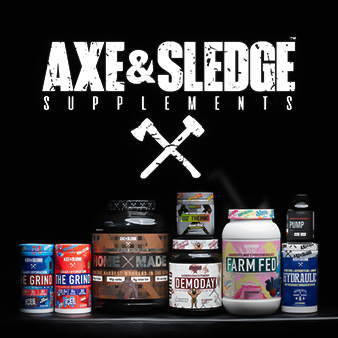How about one of the most nutritional foods on the planet. Eggs have a little bit of everything, and a lot of the most important thing to muscle-seeking folk: protein. If a good chicken breast is your first source of protein (and that’s a good spot for it), it’d be a good idea to put whole eggs and eggs whites as a solid option 1A.
Whole Eggs versus Egg Whites – What’s the Difference and Which One Should I Be Eating?
Scrambled … over easy … hard boiled … What kind of egg should I be eating? Well, there is not a bad way to consume what I like to call one of the few “superfoods.” But, for this article we’ll focus on the type of egg to include in your omelet, breakfast plate or after workout snack: whole eggs and egg whites.
Whole eggs, or eggs that include the yolk, contain considerable calories and nutrients with the egg yolks that egg whites do not. Fat-soluble vitamins (A, D, E and K) are found in the yolk, which also contains healthy fats and cholesterol necessary for hormones such as testosterone.
Egg whites are a low-calorie food (about 17 calories each, compared to 71 per whole egg), that contain no saturated fat or cholesterol. They also don’t contain carbohydrates or sugar and are a nearly pure source of protein, making them ideal on paper for building muscle, right?
Here’s a comparison of what whole eggs and egg whites contain in terms of macronutrients:
8 Egg Whites: 28 grams of protein, 2 grams carbs, 0 grams fat, total calories: 137[/vc_column_text][vc_column_text]
When In Doubt, Go With Whole Eggs and Don’t Look Back
Don’t be afraid of the fat! If you’re looking for protein and nutrients on a low-carb diet to get shredded like a Greek god (why wouldn’t you be?), whole eggs is the better choice over egg whites.
Whole eggs do contain more calories from fat than they do from protein, but dietary fats slow protein absorption, allowing it to stay with you longer. When it comes to bodybuilding, the better amino acid profile also is found in whole eggs.
While you can’t go wrong with the quick fix of egg whites, whenever possible, whole eggs will take you to the promised land. Remember the magic number: 3. Up to three whole eggs a day has been found in studies to have a number of health benefits…even outside the weight room.
And it’s not even a cheat meal.
Honestly, eggs are one of the universe’s absolutes. Cheap, easy to prepare, taste great and can help get you jacked.
Why are you not in the dairy aisle getting a carton right now?[/vc_column_text][/vc_column][/vc_row]





